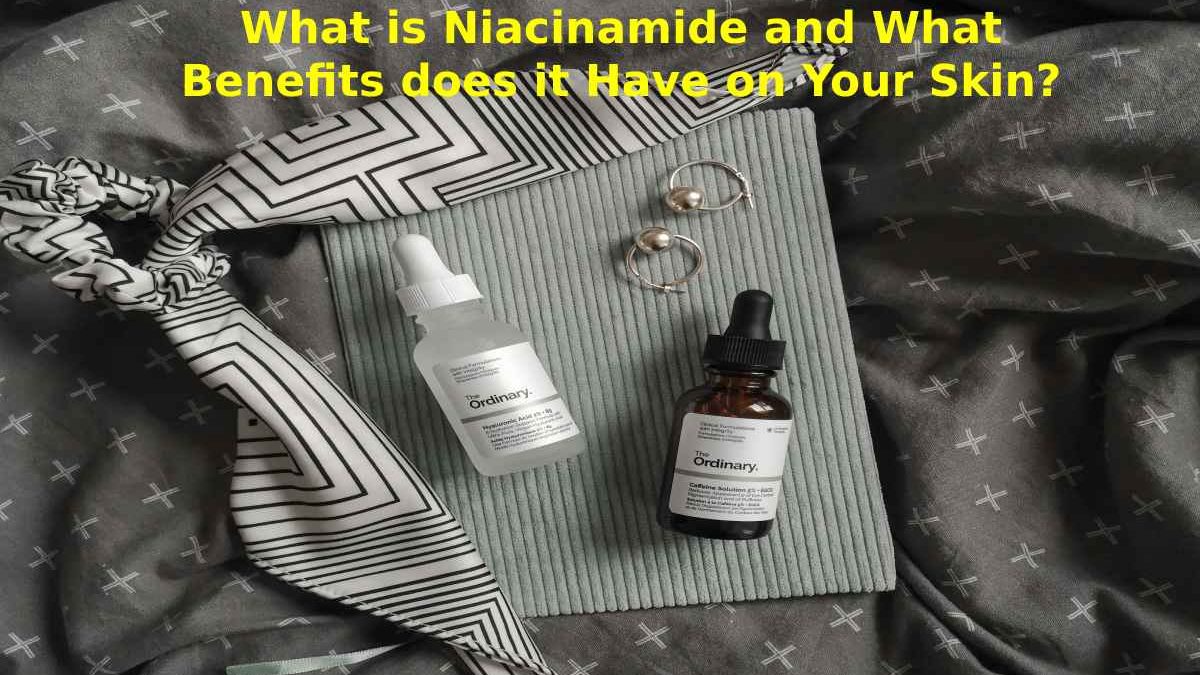Niacinamide is a water-soluble vitamin capable of penetrating the topmost layer of the skin. It is more of a form of vitamin B3 extracted from plant roots and yeasts. We can also find it in various foods such as dairy products (milk, eggs, etc.) and some meats.
One of the significant advantages of niacinamide is that it is a low molecular weight vitamin. Therefore, It will allow you to reach the deepest layers of the skin. In addition, it is an ingredient that can be used on all skin types and has a large number of benefits that we will see below.
Table of Contents
What is it For?
Both niacinamide and niacin play an essential role in the production of cellular energy, which is necessary to carry out cellular processes and ensure the proper functioning of the body. Among these functions is the critical task of providing power for DNA repair, which prevents ageing, the development of skin cancer, or cell death. Specifically, niacinamide is necessary for activating the coenzyme NAD, which is critical in synthesizing ATP (the energy molecule).
Niacinamide is Good for What type of Skin?
Many people ask dermatologists about niacinamide and its effect on skin type. The most common rumour about it is that it only suits acne skin and has disadvantages for dry skin. But that’s not true. Niacinamide is perfect for all skin kinds by hydrating and brightening. So, I made a list of how this high-quality skin care ingredient works for oily and dehydrated skin.
Oily Skin

For oily and acne-prone skin, the oil-producing glands produce excessive oil and clog the pores. When they acquire clogged with oil, excess sebum, and dirt, they result in acne, pimples, blemishes, blackheads, etc. Niacinamide minimizes the activity of the oil-producing glands. And keeps the skin balanced water-oil. Plus, it works wonders on fading dark spots and acne scars.
Dry Skin
It becomes flaky and rough when skin is dehydrated, so skin cells can’t absorb moisture and hold onto it. Niacinamide enhances the hydrating power of moisturizers. And prepares the skin to retain and penetrate more water by improving the hydration level of skin cells.
Can you get Niacinamide Through Diet?
Serums or creams with niacinamide provide an extra benefit to the epidermis. However, a fraction of this can be obtained through food and reach the dermis (deep layers of the skin) supplied by blood vessels. Vitamin B3 is found in meats, liver, fish, legumes, nuts, green leafy vegetables, wheat, oats, mushrooms, yeast, milk, eggs, coffee, and tea.
Diets deficient in vitamin B3 can lead to a condition known as pellagra, which is characterized by diarrhoea, dementia and dermatitis. In addition, it indicates the importance of niacinamide in organs that require high levels of energy, such as the intestine, brain and skin.
Benefits of Niacinamide
Considering that niacinamide is tolerable on all skin types, anyone can benefit from its beneficial properties. The most interesting are the following:
Moisturizes the Skin
One of the excessive benefits of niacinamide is that it hydrates your skin. As a result, the application of this element increases collagen production to reduce wrinkles and signs of ageing. In addition, your skin will be much more elastic and hydrated again, thanks to the fact that niacinamide forms a skin barrier against external agents.
Fights and Reduces Acne
Acne is a skin disorder affect by the clogging of hair follicles with oil, dead cells and other impurities. It usually occurs more commonly among adolescents, but some adults suffer from it. Niacinamide has sebum-regulating and anti-inflammatory properties that fight and reduce acne.
It is an ingredient that moisturizes the skin in-depth and reinforces the creation of new cells to keep your face free of impurities. Thus, it can reduce the characteristic marks that acne leaves on the front and even the spots around it.
Reduces Irritation and Redness
Facial irritation and redness are two disorders that people with susceptible skin suffer from. Niacinamide can work against them. It is a component that will make your skin look more beautiful and healthy, reducing skin redness, dryness and itching that some disorders cause.
However, you have to know how to choose the concentration of niacinamide well not to cause the opposite effect. Too high a concentration may cause temporary skin redness or irritation during application.
Protects Against the Effects of the Sun
The special effects of ultraviolet rays from the sun are very harmful to your skin. Such overexposure can cause your skin to become drier and age faster. Niacinamide, on the other hand, reduces the damage that solar radiation causes to your skin cells .
But the relationship between niacinamide and the sun doesn’t stop there. It is also a component capable of reducing skin pigmentation and sunspots. This product will keep your skin free of redness, thus avoiding photoaging.
Antioxidant Properties
Finally, we must talk about the antioxidant properties of niacinamide. Its application protects the skin from free radicals and external agents. In addition, it combats the signs of ageing that, precisely, are motivate by free radicals, pollution, sunlight, cold, etc.
Conclusion
As you can see, niacinamide has many benefits since it is a product that can be use on all skin kinds and is a trend in cosmetics. It fights and reduces acne, calms irritations and redness, hydrates and enhances collagen production. Niacinamide, in short, is one of those ingredients that will help your skin look younger, smoother and brighter.
Also Read: What is Clinic Management Software? – Features, and More

